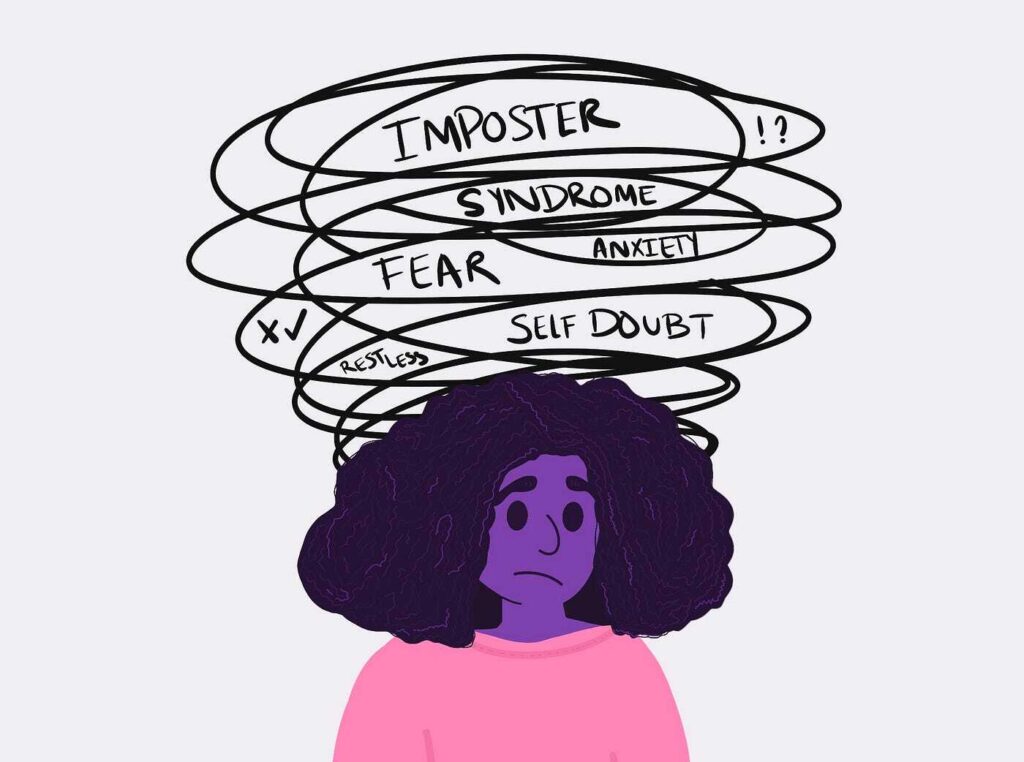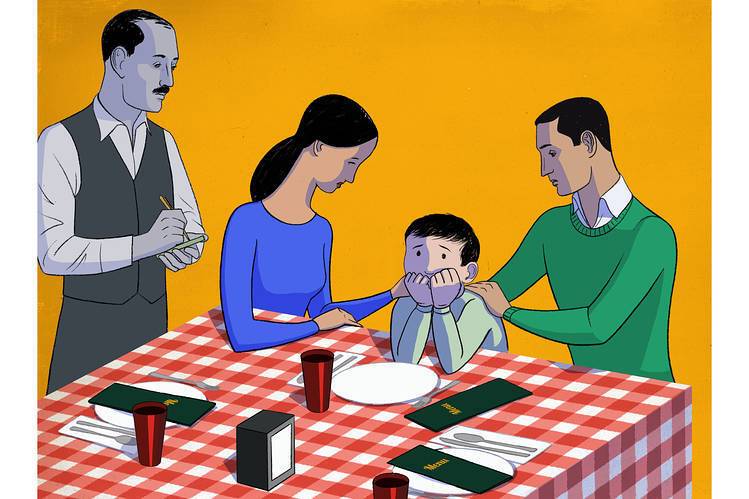The Psychological Dynamics of Self-Doubt and Overthinking

Self-doubt and overthinking are closely related cognitive processes that can have a profound impact on an individual’s mental health and overall well-being. These phenomena often lead to a cycle of negative thinking, emotional distress, and impaired decision-making. In this article, we will explore the psychological underpinnings of self-doubt and overthinking, discussing their origins, their effects on behavior, and strategies for managing them. By understanding these psychological processes, individuals can develop healthier ways to cope with and overcome the mental traps that often accompany self-doubt and overthinking.
Understanding Self-Doubt and Overthinking

Self-doubt and overthinking are interrelated cognitive tendencies that frequently occur together. Self-doubt refers to a lack of confidence in one’s abilities, judgments, and decisions. It is the persistent feeling of uncertainty regarding one’s competence or worth. Overthinking, on the other hand, is the process of excessively analyzing or ruminating on a situation, often leading to a paralysis of action or heightened anxiety. When these two processes combine, they can create a vicious cycle that traps individuals in a state of mental and emotional turmoil.
Psychologically, self-doubt often arises from past experiences, particularly those involving failure, criticism, or rejection. Negative feedback or perceived inadequacies can plant seeds of doubt that grow into pervasive beliefs about one’s ability to succeed. Overthinking then becomes the cognitive tool through which self-doubt is expressed. Instead of acting confidently, the individual begins to question every potential outcome, considering all possible mistakes or consequences. This overanalysis often prevents action altogether, reinforcing the original self-doubt.
The Cognitive Mechanisms Behind Self-Doubt and Overthinking
To understand self-doubt and overthinking more deeply, it is essential to explore the cognitive mechanisms that underlie these processes. Cognitive psychology suggests that self-doubt and overthinking are closely tied to cognitive distortions—irrational thought patterns that distort reality. Common cognitive distortions associated with self-doubt and overthinking include:
- Catastrophizing: This involves imagining the worst-case scenario for any situation. A person plagued by self-doubt and overthinking might dwell on the most disastrous outcomes, making it difficult to take action.
- All-or-Nothing Thinking: Individuals who struggle with self-doubt often view their performance in binary terms—either they are entirely successful, or they are complete failures. This black-and-white thinking feeds into overthinking, as the person constantly ruminates over whether they will succeed or fail.
- Overgeneralization: This distortion occurs when a person makes broad generalizations based on a single event. For example, if an individual fails at one task, they might overgeneralize and believe that they are incapable of succeeding in any area. This leads to increased self-doubt and further fuels overthinking.
- Mind Reading: People who overthink often believe they can predict what others are thinking, assuming that others will judge them harshly or view them as incompetent. This contributes to self-doubt, as they fear negative evaluation even in the absence of evidence.
These cognitive distortions create a mental environment in which self-doubt and overthinking flourish. As individuals continue to engage in these distorted thought patterns, they reinforce their own doubts and become increasingly paralyzed by their thoughts.
The Emotional Consequences of Self-Doubt and Overthinking

The interplay between self-doubt and overthinking can lead to significant emotional consequences. One of the most common emotional outcomes is anxiety. When individuals repeatedly question their abilities and overanalyze their decisions, they become trapped in a state of constant worry. This anxiety can manifest as physical symptoms such as a racing heart, difficulty breathing, or muscle tension. Over time, chronic anxiety can lead to more serious mental health conditions, such as generalized anxiety disorder or panic disorder.
In addition to anxiety, self-doubt and overthinking can also contribute to feelings of depression. When individuals constantly doubt themselves and overthink their every move, they may begin to feel helpless and hopeless. This sense of hopelessness can contribute to a lack of motivation, as individuals feel that no matter what they do, they will not succeed. This cycle of self-doubt, overthinking, and emotional distress can become deeply entrenched, making it difficult for individuals to break free.
Another emotional consequence of self-doubt and overthinking is frustration. Individuals who struggle with these cognitive tendencies often become frustrated with themselves for being unable to make decisions or take action. They may feel stuck, unable to move forward due to their own mental barriers. This frustration can further exacerbate feelings of self-doubt, leading to a cycle of negative emotions that is difficult to escape.
The Behavioral Impact of Self-Doubt and Overthinking
The psychological effects of self-doubt and overthinking extend beyond emotional consequences and can significantly impact behavior. One of the most common behavioral outcomes is avoidance. When individuals doubt themselves and overanalyze situations, they may avoid taking action altogether. This avoidance can manifest in various ways, such as procrastination, indecision, or withdrawal from challenging situations. Avoidance behaviors serve as a coping mechanism to reduce the immediate discomfort associated with self-doubt and overthinking, but they ultimately reinforce these cognitive tendencies in the long run.
Another behavioral impact of self-doubt and overthinking is perfectionism. Individuals who struggle with self-doubt often set excessively high standards for themselves, believing that anything less than perfection will confirm their doubts about their abilities. This perfectionism can lead to overthinking, as individuals become consumed with ensuring that every detail is flawless. However, this pursuit of perfection is often unattainable, leading to increased self-doubt and further overthinking when mistakes inevitably occur.
Self-sabotage is another behavioral manifestation of self-doubt and overthinking. When individuals are consumed by doubt and constantly second-guess themselves, they may unconsciously engage in behaviors that undermine their success. For example, they might procrastinate on important tasks, fail to assert themselves in professional or personal situations, or make decisions that are not in their best interest. This self-sabotage perpetuates the cycle of self-doubt and overthinking, as individuals then use these failures as evidence to support their negative self-beliefs.
The Role of Personality and Individual Differences
Not everyone is equally susceptible to self-doubt and overthinking. Certain personality traits and individual differences can influence the likelihood of experiencing these cognitive tendencies. One such trait is neuroticism, which is characterized by a tendency toward negative emotional states such as anxiety, fear, and frustration. Individuals who score high in neuroticism are more likely to experience self-doubt and engage in overthinking, as they are more prone to worrying and ruminating on potential negative outcomes.
Perfectionism is another trait that can contribute to self-doubt and overthinking. While perfectionism is often viewed as a positive trait, particularly in achievement-oriented cultures, it can have detrimental effects on mental health. Individuals who are perfectionistic often hold themselves to unrealistically high standards and fear failure. This fear of failure fuels both self-doubt and overthinking, as individuals constantly question whether they are good enough and analyze every possible mistake they could make.
Attachment styles, developed during early childhood, can also influence the likelihood of experiencing self-doubt and overthinking. Individuals with an anxious attachment style, for example, may be more prone to self-doubt and overthinking due to their fear of rejection and abandonment. These individuals may constantly question their worth in relationships and overanalyze every interaction, leading to heightened anxiety and difficulty in maintaining healthy relationships.
The Social Context of Self-Doubt and Overthinking

The social environment in which an individual operates can also play a significant role in the development and maintenance of self-doubt and overthinking. Societal expectations, cultural norms, and social comparisons can all contribute to these cognitive tendencies. For example, individuals who grow up in environments that place a high value on achievement and success may internalize the belief that they must always excel to be worthy. This can lead to chronic self-doubt and overthinking, as individuals constantly question whether they are living up to these expectations.
Social media can exacerbate self-doubt and overthinking by providing a platform for constant comparison with others. Individuals who frequently compare themselves to the seemingly perfect lives of others on social media may begin to doubt their own worth and achievements. This can lead to overthinking, as they scrutinize their own lives and decisions in comparison to the idealized versions they see online.
Moreover, feedback from others, whether positive or negative, can significantly influence self-doubt and overthinking. Individuals who receive frequent criticism or who feel judged by others may begin to internalize these negative evaluations, leading to increased self-doubt. On the other hand, even positive feedback can sometimes contribute to overthinking, as individuals may fear that they will not be able to live up to the praise they have received.
Strategies for Managing Self-Doubt and Overthinking

While self-doubt and overthinking can be challenging to overcome, there are strategies that individuals can use to manage these cognitive tendencies and reduce their impact on mental health. One of the most effective strategies is cognitive restructuring, a technique used in cognitive-behavioral therapy (CBT). Cognitive restructuring involves identifying and challenging the cognitive distortions that contribute to self-doubt and overthinking. By recognizing patterns of catastrophic thinking, all-or-nothing thinking, and other distortions, individuals can begin to replace these irrational thoughts with more balanced and realistic perspectives.
Mindfulness is another powerful tool for managing self-doubt and overthinking. Mindfulness involves staying present in the moment and observing one’s thoughts without judgment. By practicing mindfulness, individuals can learn to become aware of their self-doubt and overthinking without becoming consumed by it. This can help to break the cycle of rumination and allow individuals to move forward with greater clarity and confidence.
Setting realistic goals and practicing self-compassion are also important strategies for reducing self-doubt and overthinking. When individuals set achievable goals and practice kindness toward themselves, they can begin to build self-confidence and reduce the need for overthinking. By recognizing that mistakes are a natural part of the learning process and not a reflection of one’s worth, individuals can develop a healthier relationship with themselves and their thoughts.
Seeking support from others can also be beneficial for managing self-doubt and overthinking. Talking to a trusted friend, family member, or therapist can provide individuals with an outside perspective and help them challenge their negative thought patterns. Sometimes, simply sharing one’s thoughts and fears with someone else can provide relief from the burden of self-doubt and overthinking.
Conclusion
Self-doubt and overthinking are complex cognitive processes that can have a significant impact on an individual’s mental health and behavior. Understanding the psychological mechanisms that drive these tendencies is the first step toward managing them effectively. By challenging cognitive distortions, practicing mindfulness, setting realistic goals, and seeking support, individuals can begin to break free from the cycle of self-doubt and overthinking and move toward a more confident and balanced way of thinking. Ultimately, self-awareness and self-compassion are key to overcoming these mental traps and living a more fulfilling and emotionally healthy life.
